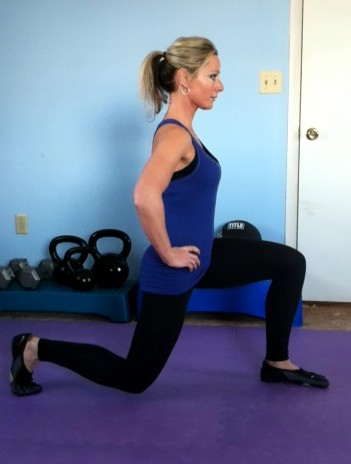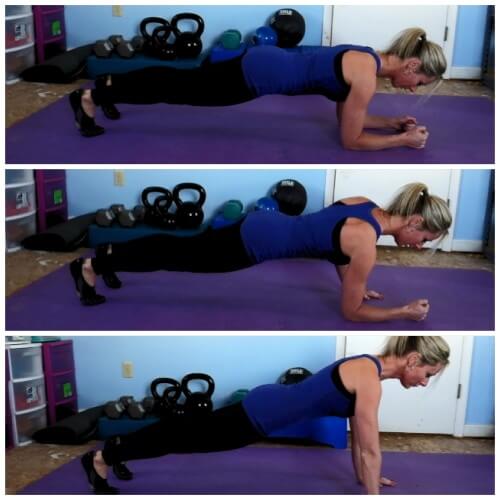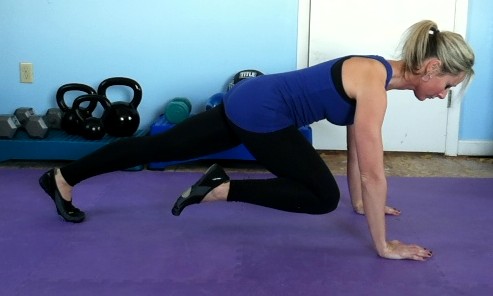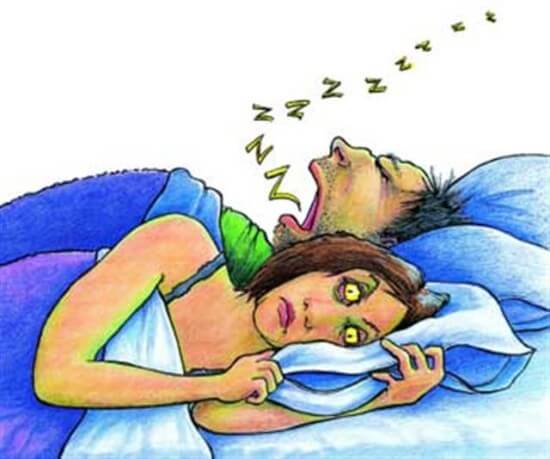Tuesday Training: 10 Natural Tips to Get Good Sleep and a Part 2 Wake Up Sleepyhead Workout
Last Tuesday, I discussed the importance of sleep and why it’s absolutely critical for our health and well being. Lack of sleep does many negative things to our body from putting us at a higher risk for disease and sickness to affecting our game day and athletic performance to making us grumpy and irritable (just to name a few).
I know some people who think sleep is just a waste of time, but the majority of the people I’ve talked with want to sleep, but struggle with it. Some people have a hard time falling asleep, others have difficulty staying asleep or in some cases, both.
Sleep is a hormone dependent process. The hormone that governs our sleep, melatonin, depends on proper hormone production during our waking hours to properly release at night. There are many lifestyle factors that affect our hormone balance such as our food choices, when we eat, artificial lights, stress, exercise and toxins.
While most mainstream doctors will easily toss you a sleeping pill prescription for your answer, popping a pill doesn’t help the underlying cause of the problem and comes with some pretty major risks as well as negatively impacting your other hormones.
I’ve come up with 10 natural ways to help promote good hormone balance during your waking hours so you will have an easier time falling and staying asleep at night:
-
Make sure your dinner contains a lot of protein, vegetables and healthy fats and do not eat 2-3 hours before bed. Eating a high protein meal at dinner prepares our body for the sleep cycle, as protein contains tryptophan. Tryptophan is then converted to serotonin and melatonin, which regulates restful sleep. Healthy fats are essential for proper hormone production and positively impact a good night sleep.
-
Avoid all sugars and carbohydrates in the evening. Eating sugars and carbohydrates in the evening gives us a blood sugar spike that makes it hard to fall asleep. Not only that, but it sets us up for a blood sugar crash in the middle of the night which can lead to us waking up.
-
Avoid caffeine at least 6 hours before bed. One dose of caffeine can stay in the body for up to 12 hours. And yes, this includes chocolate!
-
Make your room as dark as possible. Seeing any form of light (yes, even the light from your alarm clock) can interfere with the production of melatonin and serotonin and can interfere with your sleep. Even the smallest forms of light can trick your body into thinking it’s daytime, so get your room as dark as possible. Use blackout curtains if necessary and make sure there is no light in the room.
-
Put electronic devices outside of your bedroom or at least 5 feet away from you. Studies have shown electronic devices disrupt our sleep hormones. I have personal experience with this and know it to be true. I normally sleep very well, but a few months ago there were certain nights that I was very restless and could not sleep. I started to grow suspicious that my computer might have something to do with it. I normally do not take my laptop up to my bedroom, but I was trying to meet important deadlines and took my laptop up with me so I could work late while I was in bed. When I was finished working, I closed the screen and set the laptop beside me on the floor. Those were the night’s I couldn’t sleep. Once I became suspicious that it might be my laptop causing me to get restless sleep, I did a little self experiment. I still did the work up in my bedroom, but when I was finished, I unplugged the laptop and took it outside the door. I slept great. The next night, I put it beside me and sure enough, I was restless. I did this a few more times until I was sure it was the computer causing the problem. I looked up the scientific research and low and behold, electronic devices do cause sleep disruptions that interfere with melatonin production.
-
Avoid suspenseful TV shows right before bed. Ideally, you should not watch TV at all before bed as TV has been known to disrupt sleep and hormone production as well. But, I know this is unrealistic for many and a way for a lot of people to unwind from a stressful day. So if you choose to watch TV, make sure it’s not suspenseful or thrilling. Watching these types of shows is a stimulant to the brain and nervous system and makes it very difficult to fall and stay asleep.
-
Set your thermostat between 65 and 68 degrees (or lower). Our bodies naturally get cooler when we start to wind down and prepare for the sleep cycle. Having a cool room helps promote restful sleep.
-
Supplements like Vitamin D, (which are great to take and recommended for good hormone production and it boosts our serotonin levels which support good melatonin production at night) should only be taken in the morning. Vitamin D mimics sunlight so it goes without saying that you don’t want a big dose of sunshine at dinner or after.
-
Stretch or use a foam roller before bed. This is a great way to calm and relax the muscles of your body and get yourself prepared for sleep.
-
Try to stay on a consistent sleep schedule. Going to bed and waking up at the same time each day keeps your hormone cycle regular. Studies have shown that getting to bed by 10pm ensures the best quality of sleep. The super important sleep in which our adrenal glands work, happens between 11pm and 1am so getting to bed at around 10pm makes sure this will happen regularly.
The energy boosting tabata workouts were a hit last week so I’m going to give you two more good options this week. A lot of people said they liked doing such a quick and effective workout first thing in the morning. I said in my last tabata post that I also like to do a tabata as a “finisher” at the end of my regular workout. It’s like that last little bit of extra credit work that you can do for maximum muscle building, fat loss, and calorie blasting.
As always, I give easier modifications for any age or fitness level in the picture descriptions. If you ever need anything further modified, leave a comment down below and I will give you some good options.
This time you can pick one option or you can even do one right after the other for a full, super quick workout.
PART 2 WAKE UP SLEEPYHEAD WORKOUT
Tabata Option #1:
20 seconds of jump lunges
10 seconds of rest
20 seconds of plank to pushup
10 seconds of rest
x4 for a total of 4 minutes
Tabata Option #2
20 seconds of jump rope or jumping jacks
10 seconds of rest
20 seconds of mountain climbers
10 seconds of rest
x4 for a total of 4 minutes

Get into a lunge position by steping forward with your right leg and lowering your body until your right knee is 90 degrees. Your rear knee should almost touch the floor, but not quite touch it. Your torso should remain upright. Once you are in lunge position, explosively jump in the air and switch legs so that your left foot is now in front for your lunge position. Keep jumping and alternating legs for your lunge. You want to land softly.
*This is very difficult so you may need modifications.
The easiest of modifications is to take out the jump completely and just do lunges.
Another modification (the harder of the modifications) is to do assisted jump lunges where you hold onto a railing or countertop while you do jump lunges.

Start in a plank position with your elbows bent and your weight resting on your forearms. You should form a straight line from your ankles to your head. Now get into a pushup starting position by moving one arm at a time. Your back should stay straight . Once you are in a pushup position, come back down into a plank position by moving one arm down at a time. Make sure to keep alternating which arm starts first. Do these as fast as you can for the prescribed time. *Modified version: do these in a modified plank and pushup position with your knees bent.

Get into a pushup position. Your body should form a straight line. Lift your right foot off the floor and raise your knee as close to your chest as you can. Touch back down with your right foot. Repeat with your left leg. Alternate back and forth as quick as you can for the prescribed time.

 Primally Inspired Real food, Natural Remedies, Holistic Living
Primally Inspired Real food, Natural Remedies, Holistic Living











I am so trying these tips. I have been struggling a lot with sleep. I’ve been doing your tabata workouts too and really like them!
I hope they can help you, Octavia!
Are sweet potatoes and Pumkin ok for dinner?
Because to much fat makes dinner again very heavy to digest.
Thanks
I love incorporating sweet potatoes and pumpkin in my dinner!
I can not wait to try these tips for sleeping – as an over “50” person sleep and I are no longer friends and I will do anything to get that friendship back :)! THANKS